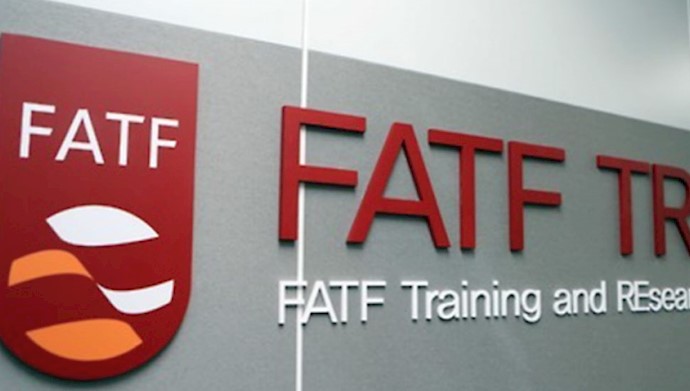Analysis by PMOI/MEK
Iran, April 9, 2019 – While the noose of sanctions and diplomatic isolation is tightening around the neck of the regime in Iran and the hope for Europe’s financial mechanism, also called INSTEX, is conditioned on Tehran conforming to the Financial Actions Task Force (FATF) money laundering standards, even proponents of the European rescue plan are becoming increasingly pessimistic.
On the anniversary of the U.S. exiting the JCPOA and after months of wishful thinking about the European package rescuing the ruling theocracy’s crumbling economy, Iranian regime foreign minister, Mohammad Javad Zarif shows his clear disappointment about the direction of the events.
“A year after US' unlawful abrogation of JCPOA, Europe can't muster political will to defy US' #EconomicTERRORISM. Not even by setting up a single banking channel for humanitarian aid,” Zarif wrote on Twitter.
“E3 are instead busy appeasing @realDonaldTrump by pressuring UN over our defensive capabilities,” Zarif added by backing up his claim with a France 24 article titled, “Britain, France, Germany seek full UN report of Iran missile activity.”
UN Security Council Resolution 2231— adopted just after the 2015 nuclear deal—calls on Iran "not to undertake any activity related to ballistic missiles designed to be capable of delivering nuclear weapons."
This is the very resolution that endorsed the failed Iran nuclear deal.
IRNA news agency, close to the supposed “moderates" circling around regime's President Hassan Rouhani provides an interesting perspective.
“The uncertain, and in a way hopeless situation, of approving the FATF bills [in Iran] continues while directors and analysts of the banking sector have already warned time and again about the consequences of not approving the aforementioned bills for the banking network [of Iran],” a recent piece reads.
“If we don’t join this international agreement [FATF], every bank can avoid working with us with this excuse,” Seyed Kamal Seyed-Ali, a former deputy governor of the Central Bank of Iran, said to IRNA.
Seyed Reza Haji Aghamiri, a member of Tehran Chamber of Commerce, Industries, Mines and Agriculture, also voiced concerns.
“In the new year, there is the FATF issue that, if not approved, the current international spread of negativity about us will increase,” he said. “Under the pretext of [ballistic] missiles and support for terrorism, the U.S. and our enemies seek to paralyze our economy and we should be vigilant about this and shouldn’t give them excuses. Generally, the new year will be a tough one for Iran’s economy.”
Mehdi Pazouki, a former Iranian official close to Rouhani’s faction and a current professor of economics at the Tabataba'i university in Iran, sought to turn the spotlight on the rival faction loyal to regime Supreme Leader Ali Khamenei.
“I believe that the Expediency Council must be responsible about such decisions and pay its price. As we consider the government responsible for escalating inflation, if problems arise in Iran’s trade with other countries in case the FATF is not approved, the responsibility will be on the Expediency Council’s shoulders,” he said.
“Approving the FATF is not tantamount to economic problems being resolved. Current problems are rooted in our management and views, but we should pay attention that with economic ignorance, one can’t remove these problems.”
On the other hand, the Mashregh News website, close to Khamenei's faction, attacked an Iranian MP who had said that “The FATF is U.S.’ bullying, but we need to accept it.”
“The reformists claim that in order to rescue the JCPOA we need to join the FATF. While prior that, according to proponents of the nuclear deal, the JCPOA was supposed to solve all the country’s problems,” Mashregh News writes.
“They say, sign the JCPOA to rescue the economy; accept Europe’s financial channel so that the JCPOA is rescued; accept the FATF to rescue the European financial channel, accept the ballistic missile [limitations] and regional [restrictions] to so that FATF is rescued, accept the human rights [demands] to rescue the ballistic missile and regional [deal],” Mashregh News adds.
The so-called reformist faction’s insistence on approving the FATF bills on the one hand and the rival faction’s consistent opposition to confirming the world’s de facto financial transparency standards clearly indicate that from the ruling mullahs’ point of view, there are no good options on the table; just lesser evil.
As previously pointed out, real reforms to adhere to a minimum of financial transparency cut to the bone of the Islamic Republic’s philosophy and will have fundamental and far-reaching effects on its mode of behavior and power structure, ultimately resulting in its demise.
The current controversy and indecisiveness about the FATF’s fate in Iran is just another manifestation of the same old dilemma that emanates from a regime that is ideologically rooted in the Dark Ages.
There has been and will be more lessons to learn.





